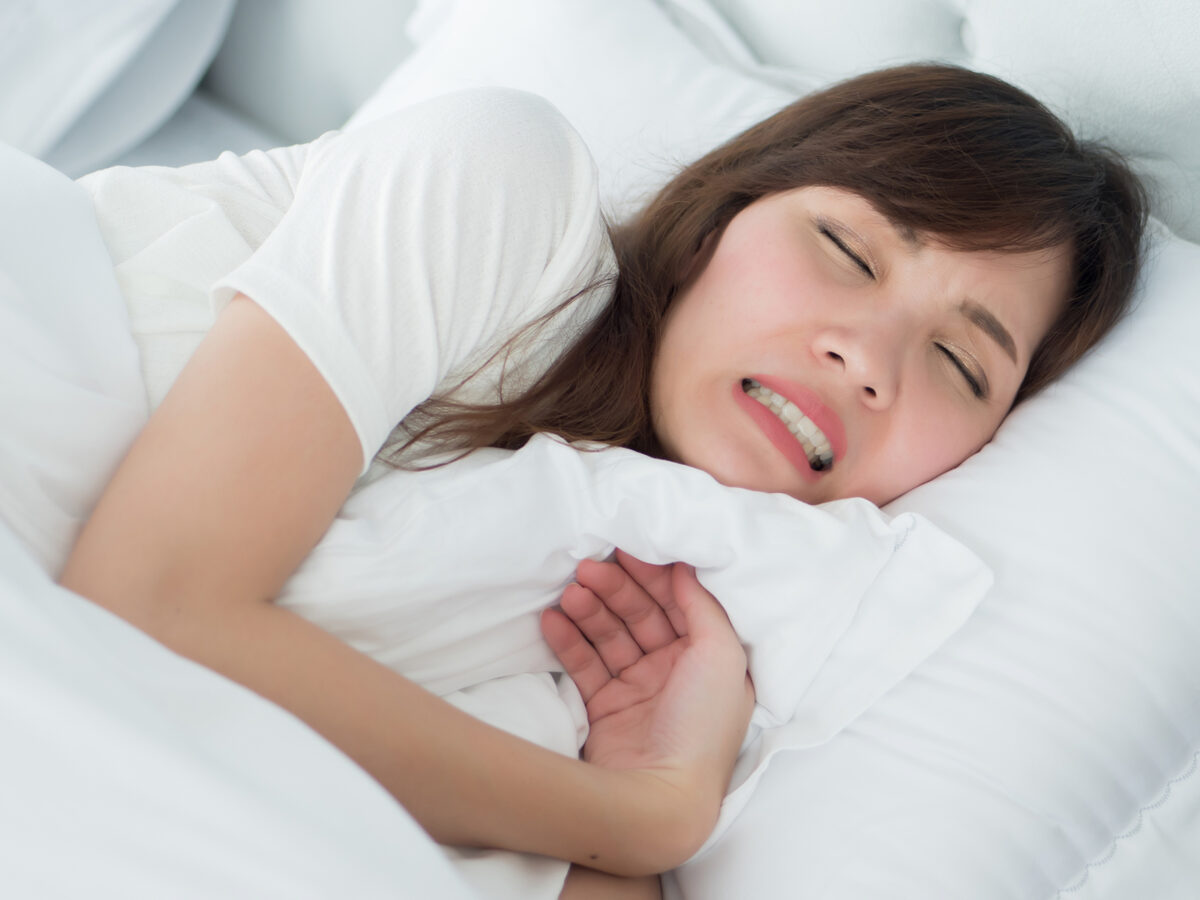Blog
Dental hygiene tips for healthy teeth & gums

Ways you can reduce or stop grinding your teeth
Many people unknowingly grind or clench their teeth from time to time. This grinding is called bruxism and, if done occasionally, does not pose any serious problems. In general, teeth grinding occurs during sleep, which can have far-reaching dental consequences if done regularly.
Many might not even realize that we grind or clench our teeth unconsciously. But if grinding happens frequently, you might develop symptoms like a sore jaw or headache.
Why do People Grind Teeth?
There are many physical as well as psychological reasons for teeth grinding. It could occur due to stress or anxiety and dental issues like missing or crooked teeth, abnormal bites, etc.
Symptoms of Teeth Grinding
If you suspect you have bruxism, your dentist will ask you questions and look at the following symptoms to assess if you are grinding your teeth.
- You have obvious oral abnormalities, such as crooked or missing teeth.
- Your jaw muscles feel tender.
- There is damage to the inside of your cheeks and underlying bone. This can be checked via X-rays.
Through a thorough dental exam, your dentist can identify other disorders which could affect your ears and jaws, such as TMJ (temporomandibular joint) disorders, etc.
What Harm Can Teeth Grinding Cause?
Chronic grinding can lead to many dental complications, for instance, loose or fractured teeth or tooth loss.
- Constant grinding has the potential to wear down your teeth to stumps. In such an event, you might need crowns, bridges, dental implants, canals, partial dentures, complete dentures, etc.
- Apart from losing teeth, grinding also affects jaws which can cause or worsen TMJ or TMD.
- Grinding also has the potential of changing your facial structure.
How to Stop or Reduce Grinding?
In some cases, you do not need to seek professional treatment. If your kid has developed bruxism, s/he will grow out of it without requiring treatment. But if the problem is severe, you might need some dental approaches, medications, or therapies to reduce grinding and prevent damage.
- Mouth guards or splints – These are appliances that keep teeth separated so that the damage due to grinding and clenching is minimized. They could be made of soft materials or hard acrylic and fit over your jaws.
- Dental correction – If grinding has made it difficult to chew or increases sensitivity in teeth, your dentist might need to reshape your chewing surfaces or even use a crown to repair the damage.
- Anxiety or stress management – If grinding is a result of stress or anxiety, then you would need to learn strategies to relax your mind, for example, meditation. You could also consult a counselor to manage stress. Some of the relaxing techniques you could do are:
- Apply a warm and wet towel to your jaws (alternatively, you could use heating pads.)
- Take a warm bath before bed as it would relax jaw muscles.
- Drink warm herbal and caffeine-free tea to warm your mouth.
- Behavior change – Once you know you have bruxism, you might need to make some behavior changes, like practicing proper jaw and mouth position. You might need to avoid chewy foods such as popcorn, steak, or taffy as they need a lot of chewing, which can further wear down your teeth.
- Medications – Usually, medications are not so effective in handling bruxism, but there are a few medications that might work:
- Muscle relaxants – Your doctor might advise a short-term medication of some muscle relaxants before bedtime.
- Botox injections – In some severe cases, that do not respond to any strategy might be given botox injections, a form of botulinum toxin.
- Medication for stress and anxiety – Short-term use of anti-anxiety or antidepressant medicines might help you deal with stress better, which could reduce teeth grinding.
- Avoid certain foods – Foods and drinks containing caffeine, such as colas, coffee, and chocolate, might worsen bruxism, so it is advisable to cut back on such food items.
- Reductive coroplast- This is a dental procedure where your dentist would level or reshape the biting surface of your teeth. If you grind your teeth due to crowded, crooked, or misaligned teeth, then reductive coroplast can help with that. In certain cases, an additional process called adaptive coroplast might also be done to build up the teeth.
- Biofeedback – Biofeedback is a treatment that helps people be aware of certain problematic behavior and eliminate them. This therapy can be helpful in both nocturnal as well as awake bruxism. During the process, a biofeedback therapist guides you on how to control the movements of your jaw muscles through vibratory, visual, or auditory feedback generated by electromyography.
- Exercises for tongue and jaw muscles – By learning certain tongue and jaw muscle exercises, you can relax the facial muscles and aid in proper jaw alignment. Your dentist can help you with such exercises.
Teeth grinding can lead to many associated issues such as headaches, pain in the jaw, face, ears, loose teeth, etc. If you have any symptoms described here and you suspect you might have bruxism, it is best to seek professional help to manage it.
